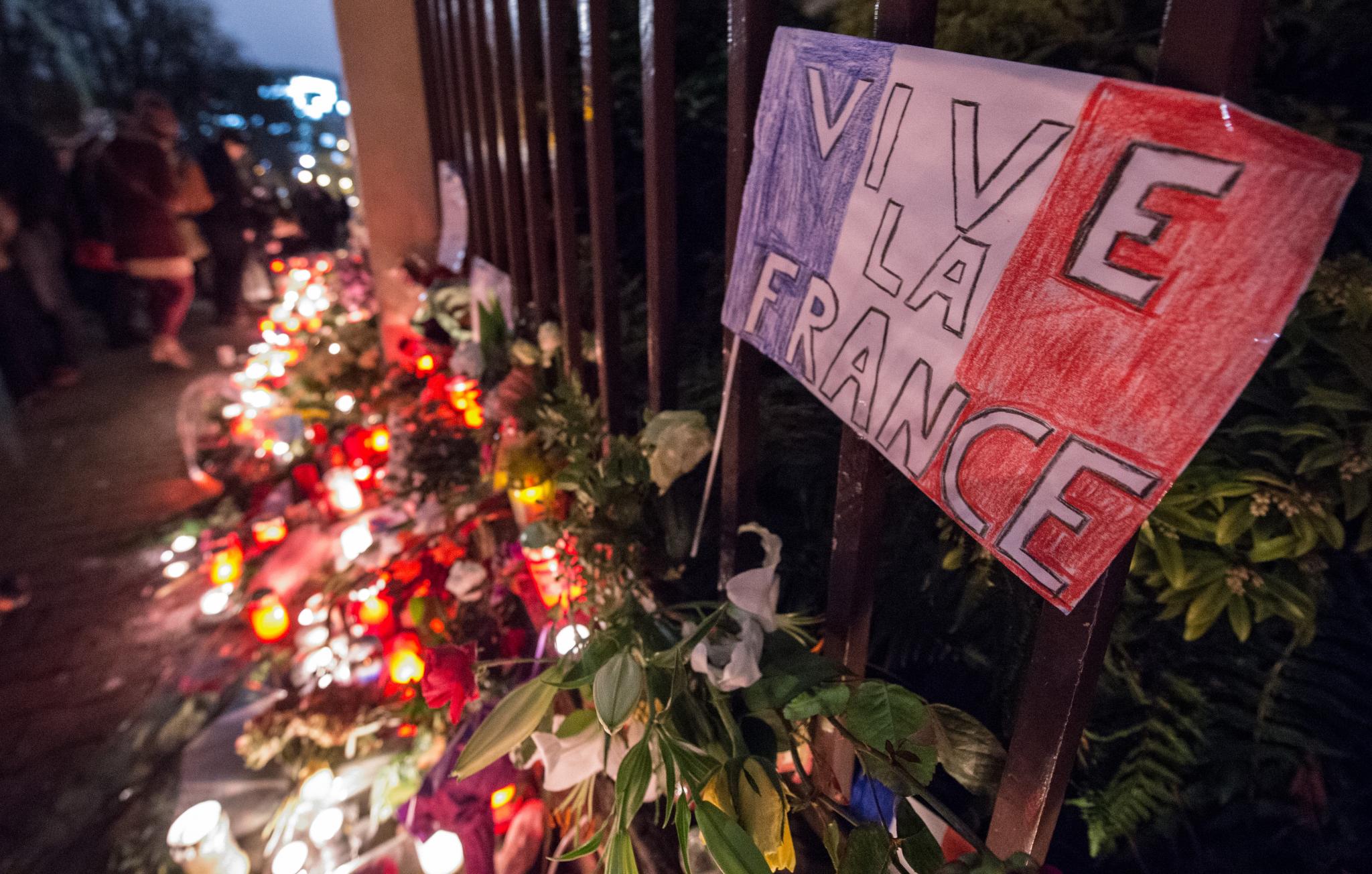
When word spread that a numbers of shootings and bombings were happening at various Parisian locales on Friday, millions around the world had the same instinct: to log onto Facebook and Twitter.
Whether you were searching for the latest developments, ensuring a loved one’s safety, logging on to temporarily switch your profile picture to an overlay of the French flag or simply reposting a viral illustration, social media was a light in the storm.
Within the first 24 hours of the coordinated ISIS attacks, 4 million Paris-related tweets were sent out, according to New York University’s Social Media and Political Participation Lab. Though highly concentrated in the United States and Europe, tweets lending support poured in from six continents—excluding Antarctica—and were written in various languages including French, English, Arabic, Turkish and Japanese.
Celebrities React to Paris Terrorist Attacks on Social Media
Additionally, within minutes of the news breaking, Facebook rolled out its “safety check” feature, allowing anyone recently geotagged in nearby areas to share that they were alright.
However, with people pointing to Thusday’s ISIS bombings in Beirut that claimed 43 lives and the April Shabab attack on Kenya’s Garissa University that left 147 dead and wondering why there was no such similar opportunity then, Facebook execs were forced to issue a response.
In a blog post on Saturday, Facebook Vice-President of Growth Alex Schulz wrote that although the safety feature is typically reserved for natural disasters, they decided to implement it on Friday because of the large volume of people attempting to communicate with their loved ones (4 million people checked in in the first 24 hours). He added that the feature was harder to use in areas that saw higher frequencies of attacks since there was no “clear start or end point,” though he promised that Facebook would begin using it more.
“Facebook became a place where people were sharing information about looking to understand the condition of their loved ones,” Schulz wrote. “There has to be a time for trying something new, even in complex and sensitive times, and for us, that was Paris.”
It’s only natural that the way we deal on social with disasters (both natural and man-made) would continue to evolve as the technology does, but this brings to light the equally important need to make sure that all are served as they search for information, reassurance, and community.